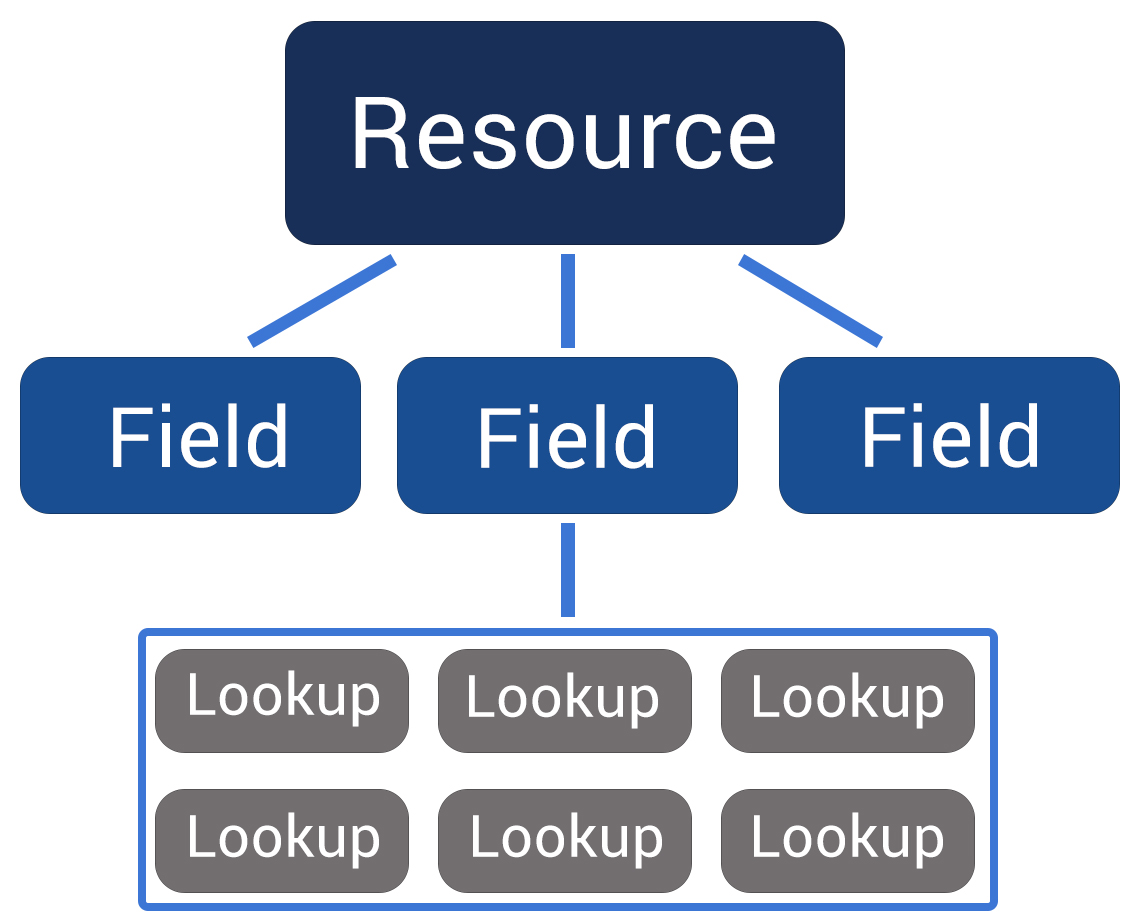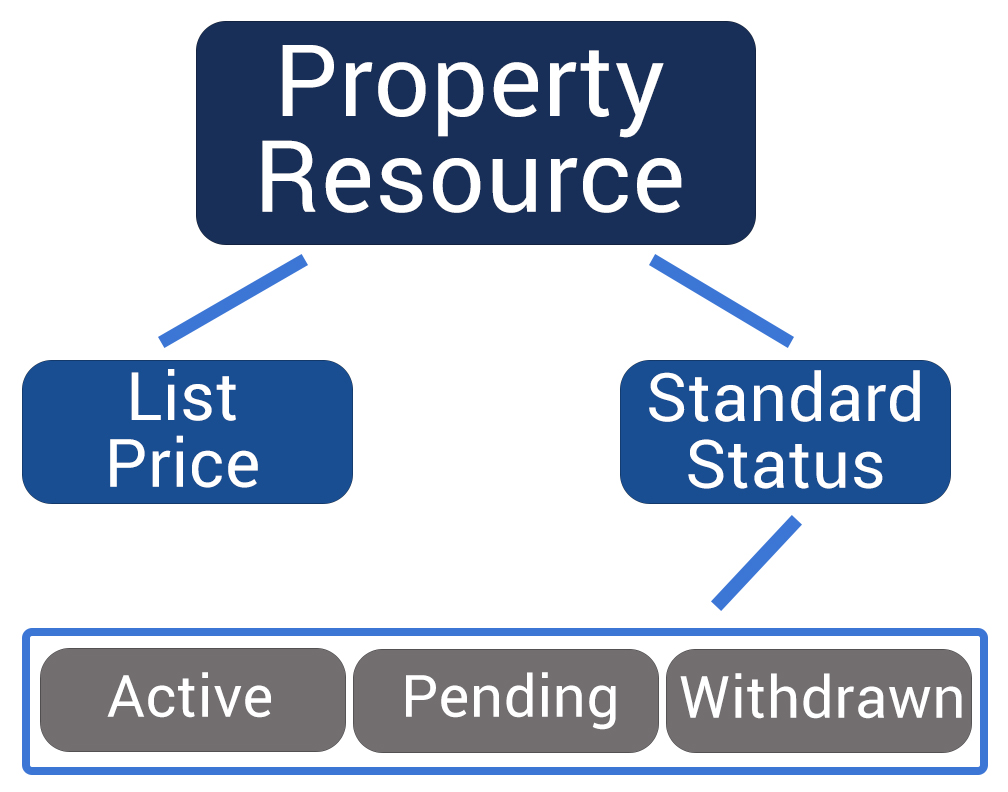The RESO Data Dictionary is the real estate industry’s universal language for data. It allows a wide range of systems to talk to each other in a seamless manner.
The need for the Data Dictionary arose as the real estate industry evolved from printed MLS books to a digital experience.
Thousands of REALTOR® associations and MLSs adopted unique technology systems to serve their local markets. These systems often could not communicate with each other.
Data Dictionary 2.0
RESO Data Dictionary 2.0 is the real estate industry’s largest-ever leap forward in data consistency. Software vendors have spent years preparing to bring this massive efficiency improvement to MLSs, brokers, agents and all data consumers.
Data Dictionary 2.0 ensures that the fields and pick lists in real estate listing data are consistent across tools from the MLS to consumer-facing websites. With a roadmap to streamlined interoperability, technology vendors can integrate their property information with a vast number of software products, reports and displays for their agents and clients.
The time and cost needed to create or onboard innovative products can be greatly reduced. Increased competition and product choice are inevitable when the lock-in of proprietary data models is traded for data products based on open, transparent standards.
Languages
While the RESO Data Dictionary is in English at the data description level, it can easily be extended to other languages. RESO has a standard for delivering multi-language metadata, so that users can choose which language to display in which marketplaces.
The Data Dictionary defines real estate data in consistent terms and structures and is a template for building systems that are flexible, scalable and interoperable, no matter where you are in the world.


Visit the RESO Data Dictionary Wiki for the full list of data resources, fields and lookups that guide the development of data systems.
Data Dictionary Construction


Major categories are called resources. Property, Member (i.e., real estate agents), Office (i.e., real estate brokers) and Media are all resources.
Resources are made up of fields, some of which are contained in groups, particularly in the Property Resource. For example, the Characteristics Group contains fields for Community Features, Horse Amenities, Laundry Facilities, Pool Features and more.
Lookups are specific items associated with fields. For example, the Fencing field contains lookups for different fence description types, such as Chain Link, Front Yard, Perimeter, Vinyl, Wood and more.
There are extensive links and cross links within the wiki. For example, while viewing a field with lookups, you can also expand lookup details. It is also possible to chain backwards from any lookup items to one of its referenced fields.


From the wiki or in the technical specifications below, the Data Dictionary can also be downloaded as a spreadsheet. In fact, this is the format in which the dictionary begins and how all new items are added to it.
Each version of the Data Dictionary contains valuable introductory information in the wiki to help understand its background, use and context. Topics include:
- Request Addition/Change
- Change Log Summary
- Data Dictionary Certification
- Data Dictionary Terms and Meta Definitions
- Deprecated Fields and Lookups
- Resource and Version Info
- Searching the Data Dictionary Wiki
Benefits
Using the Data Dictionary creates concrete benefits for professionals and consumers:
- Simplified Integrations: Standardized data allows tools to work together more accurately.
- Faster Creation of New Tools: Technology built on a common standard saves time and money via speed while creating more insightful data.
- A Seal of Approval: RESO certification provides a level of trust that data partners can rely upon.
- Promotion of Leadership: The “RESO Certified” logo is a sign that an organization is leading the industry in moving standards forward.
- Industry Collaboration: Working with RESO’s 800+ member organizations provides significant benefits for industry newcomers and incumbents.
Technical Specifications and Testing Rules
These documents describe RESO’s specifications. Because MLSs certify Data Dictionary standards on the RESO Web API, both sets of specifications are important for technical developers to understand.
By downloading these resources, you confirm that you agree to the RESO EULA.
- Data Dictionary 2.1 In-Process Spreadsheet
- RESO Data Dictionary Wiki 2.0
- Data Dictionary 2.0 Ratified Spreadsheet
- Data Dictionary 2.0 Specification
- Data Dictionary 2.0 Release Guide
- RESO Data Dictionary Wiki 1.7
- Data Dictionary 1.7 Ratified Spreadsheet
- Common Schema Reference Metadata (Web API Core 1.0.2+, DD 1.7)
- Data Dictionary Representation in the Web API (RCP-031)
- RESO Commander Testing Tool
Extensibility
While RESO’s Data Dictionary defines a standard for many kinds of data fields, it also allows for local markets to establish custom fields that reflect unique local situations. Local fields can also be managed in a standardized way, allowing flexibility while ensuring interoperability. Local real estate flavors can easily remain flavorful!
Additionally, new fields are regularly added to the Data Dictionary to support industry needs. By joining RESO and collaborating with its workgroups, members are able to directly expand RESO standards. | VISIT THE DATA DICTIONARY WORKGROUP
Omissibility
On the other side of the equation, the Data Dictionary is made up of more than 1,700 fields and 3,100 lookups. Adoption of the full Data Dictionary is not expected for most organizations and is not required for certification.
Certification
RESO certifies MLSs, brokers and technology partners on the RESO Data Dictionary and Web API standards. RESO also certifies standalone Data Dictionary payloads through the RESO Common Format standard.
Visit RESO Certification or email certification@reso.org for further answers.
Acknowledgements
RESO members are the industry experts who craft the Data Dictionary. We are enormously grateful for their contributions.
Editors: Rob Larson, Bob Gottesman, Joshua Darnell, Jeremy Crawford, Paul Stusiak, Jason Darrough, Greg Sax
Contributors: AJ Sulayman, Alexander Likholyot, Amanda Herring, Anthony Percaccio, Ashish Antal, Audrey Bagdon, Barbara Keller, Beldon Panter, Bill Kellogg, Bob Kimpland, Brian Kennedy, Bruce Wolven, Cal Heldenbrand, Chime Ogbuji, Chip McAvoy, Connie Saldana, Chris Haran, Chris Lambrou, Darren Bailey, Daniel Ortega, David Williamson, Debbie Zorawowicz, Ed Newman, Eric Peterson, Eric Stegemann, Fred Larsen, Gayle Ludemann, Geoff Weinhold, Greg Lemon, Greg Moore, Harman Gill, Ivaan Nazaroff, James Martin, James Sullivan, Jason Graham, John Breault, Joseph Szurgyi, Josh Tayloe, Joshua Vosper, Kevin Tranby, Kristin Youngk, Kim Hutchinson, Laura Stukel, Lori Coburn, Malcolm Waring, Mary Foster, Mark Bessett, Mark Lesswing, Matt Cohen, Mathew Kallumadil, Matthew McGuire, Matthew Pittis, Meg Garabrant, Michael Dean, Michael Wurzer, Mike Sparr, Olga Ermolin, Patrick Williamson, Paul Desormeaux, Paul Hethmon, Rebecca Jensen, Richard Gibbens, Richard Torp, Rick Herrera, Rick Trevino, Rob Overman, Rob Wagoner, Russ Bergeron, Sam DeBord, Sean Murphy, Sergio Del Rio, Steve Ledwidth, Steve Price, Troy Davisson

